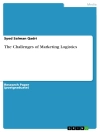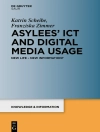In ‘Proofs of a Conspiracy against all the Religions and Governments of Europe, ‘ John Robison presents a meticulous examination of the political and religious upheavals of 18th-century Europe, seeking to unveil the machinations of secret societies, particularly the Illuminati. The author adopts a rational, didactic prose style imbued with Enlightenment ideals, merging historical analysis with polemical argumentation. This book is situated within a context of growing anxiety concerning the impact of revolutionary thought on established institutions, reflecting the turbulent climate of a Europe on the brink of significant social upheaval. John Robison, a notable Scottish scientist and philosopher, was well-acquainted with the intellectual currents of his time, having been immersed in the scientific community and the Enlightenment discourse. His experiences as a fellow of the Royal Society and connections to key figures in the scientific and philosophical realms likely catalyzed his concern about the threats posed by radical ideologies. His background implies a strong impulse to defend traditional institutions against perceived encroachments from secretive extremist factions. Robison’s work is an essential read for scholars and casual readers alike who are interested in the intersection of conspiracy theory, politics, and religion during a critical epoch in history. This book not only contextualizes the fears surrounding secret societies but also invites reflection on contemporary parallels in the ongoing discourse about power and secrecy, making it a significant contribution to both historical literature and modern political thought.
เกี่ยวกับผู้แต่ง
John Robison (1739–1805) was a Scottish physicist and mathematician, remembered not only for his contributions to science but also for his literary work, particularly his book ‘Proofs of a Conspiracy against all the Religions and Governments of Europe.’ Born on February 4, 1739, Robison became a professor of philosophy at the University of Edinburgh and later a secretary of the Royal Society of Edinburgh. His most notable literary legacy arises from his fear of the influence of the Illuminati and secret societies on political establishments, which he ardently elaborates on in his 1797 treatise. The ‘Proofs of a Conspiracy’ is a detailed account where Robison delves into the pernicious impact he believed these groups would have on society, and it remains a significant historical text when examining the period’s concerns about clandestine organizations. His writing style in this work reflects the scholarly and analytical approach of a thinker of the Enlightenment era, and his argumentation is based on collected correspondences and personal interpretations. Though his concerns about a sweeping conspiracy were reflected in his time, modern readers and scholars often regard his work as a window into the zeitgeist of 18th-century political paranoia rather than a factual account of secret societal influence.












